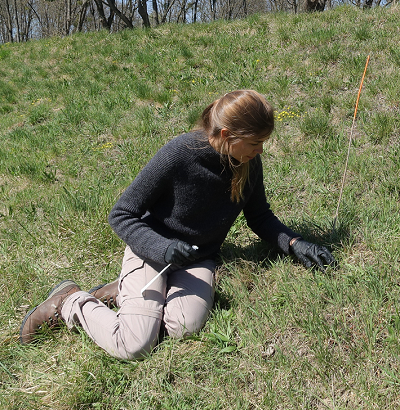Research interests
- Conservation
- One Health
- Wildlife health / Disease ecology
- Biodiversity-disease relationships
- Microbiome

Scientific projects
My scientific endeavors delve into the intricate relationships between environmental change, biodiversity, wildlife health, and the emergence of zoonotic diseases, guided by a holistic One Health perspective. Through meticulous investigation of anthropogenic activities, my research aims to elucidate how human-induced stressors impact species community assemblages, influence wildlife health, and shape the transmission dynamics of zoonotic pathogens.
Using a comprehensive approach, I evaluate the complex interplay between environmental change and biodiversity, including shifts in species community assemblages, genetic variations, and microbial diversity. Our findings underscore the pressing need for proactive measures to bolster ecosystem resilience and mitigate anthropogenic impacts on wildlife health.
One of my primary projects centers on understanding the effects of coronavirus infections on the microbiome in an African bat species complex. Through extensive collection efforts spanning thousands of bat tissue and fecal samples from caves across Ghana, we investigate gut microbiome composition and metagenomic functional diversity. By accounting for genetic background, co-infections, and environmental factors, we aim to discern the phylogenetic, environmental, intrinsic, and virus-related impacts. (Project: 'Effects of Corona and Astrovirus infections on the gut microbiomes of bats: the Hipposideros species complex as a model for virus-induced increase of pathogenic bacteria in highly gregarious mammals', DFG SO 428/17-1)
Through collaborative interdisciplinary efforts and the promotion of awareness regarding the interconnectedness of human, animal, and environmental health, we strive to advance our understanding of One Health principles and contribute to the development of sustainable solutions for global health challenges.
Publications
Meyer M, Eibner G, Heni AC, Wilhelm K, Sommer S. (2025) Changes in biodiversity drive trypanosome infections of wildlife in Panama. One Health.
Melville DW, Meyer M, Kümmerle C, Alvarado-Barrantes KA, Wilhelm K, Sommer S, Tschapka M, Risely A (2025). Delayed feeding disrupts diurnal oscillations in the gut microbiome of a neotropical bat in captivity. FEMS.
Melville DW*, Meyer M*, Risely A, Wilhelm K, Baldwin HJ, Badu EK, Nkrumah EE, Oppong SK, Schwensow N, Tschapka M, Vallo P, Corman VM, Drosten C, Sommer S. Hibecovirus (genus Betacoronavirus) infection linked to gut microbial dysbiosis in bats. ISME Communications.
Meyer M*, Melville DW*, Baldwin H, Wilhelm K, Nkrumah EE, Badu EK, Oppong SK, Schwensow N, Vallo P, Corman VM, Tschapka M, Drosten C, Sommer S (2024) Bat species assemblage predicts coronavirus prevalence. Nature Communications 15, 2887 (* shared first Authors)
(https://doi.org/10.1038/s41467-024-46979-1)
Schmid DW*, Meyer M*, Wilhelm K, Tilley T, Link-Hessing T, Fleischer R, Badu EK, Nkrumah EE, Oppong SK, Schwensow N, Tschapka M, Baldwin HJ, Vallo P, Corman V, Dorsten C and Sommer S (2023) MHC class II genes mediate susceptibility and resistance to coronavirus infections in bats Molecular Ecology, 32, 24, 3989-4002 (* shared first Authors)
Sultana M, Müller M, Meyer M and Storch I (2022) Neighboring green network and landscape metrics explain biodiversity within small urban green areas - a case study on birds Sustainability, 14, 11, 6394
Meyer M, Jurek B, Alfonso-Prieto M, Ribeiro R, Milenkovic V, Winter J, Hoffmann P, Wetzel CH, Giorgetti A, Carloni P, and Neumann ID (2022) Structure-function relationships of the disease-linked A218T oxytocin receptor variant Molecular Psychiatry, 27, 907–917
Winter J, Meyer M, Berger I, Peters S, Royer M, Bianchi M, Stang S, Langgartner D, Reber SO, Kuffner K, Schmidtner AK, Hartmann F, Bludau A, Bosch OJ, Slattery DA, van den Burg EH, Jurek B and Neumann ID (2021) Chronic oxytocin-driven alternative splicing of CRFR2a induces anxiety Molecular Psychiatry
Meyer M, Kuffner K, Winter J, Neumann ID, Wetzel CH and Jurek B (2020) Myocyte Enhancer Factor 2A (MEF2A) Defines Oxytocin-Induced Morphological Effects and Regulates Mitochondrial Function in Neurons Int J Mol Sci, 21
Jurek B and Meyer M (2020) Anxiolytic and Anxiogenic? How the Transcription Factor MEF2 Might Explain the Manifold Behavioral Effects of Oxytocin Front Endocrinol (Lausanne), 11, 186
Meyer M, Berger I, Winter J and Jurek B (2018) Oxytocin alters the morphology of hypothalamic neurons via the transcription factor myocyte enhancer factor 2A (MEF- 2A) Molecular and cellular endocrinology, 477, 156-162
Contact
- Dr. Magdalena Meyer
Institute of Evolutionary Ecology
and Conservation Genomics
University of Ulm
Albert-Einstein-Allee 11
89081 Ulm
Germany
Tel: 0731 - 50 22 641
Email: magdalena.meyer () uni-ulm.de
